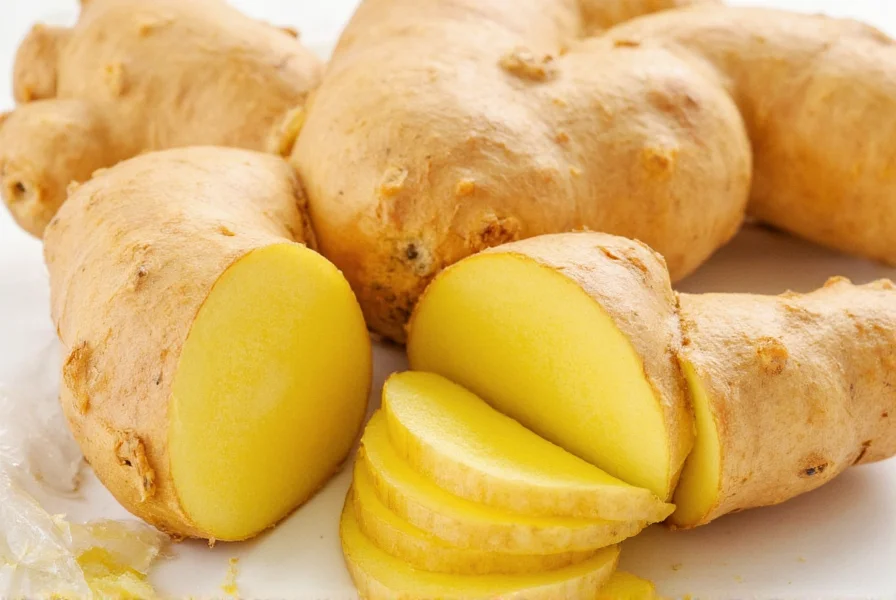Understanding Ginger: Nature's Versatile Healing Root
Ginger has been used for thousands of years across Asian, Indian, and Arabic cultures for both culinary and medicinal purposes. Modern research continues to validate many of these traditional uses, revealing ginger's impressive therapeutic potential. Unlike many herbal remedies that lose potency when processed, ginger maintains its beneficial compounds whether consumed fresh, dried, cooked, or as an oil or juice.
Different Varieties of Ginger
While most consumers encounter only one type of ginger at their local grocery store, numerous varieties exist with distinct flavor profiles and uses:
| Variety | Characteristics | Best Uses |
|---|---|---|
| Common Yellow Ginger | Mild flavor, smooth skin, pale yellow interior | General cooking, baking, teas |
| African Ginger | Stronger, spicier flavor, thicker skin | Medicinal preparations, bold dishes |
| Jamaican Ginger | Sweet, floral notes, less fibrous | Candying, desserts, milder medicinal uses |
| Japanese Ginger (Myoga) | Milder flavor, pinkish rhizomes, edible flowers | Garnishes, salads, delicate dishes |
Science-Backed Health Benefits of Ginger
Research published in the Journal of Medicinal Food confirms ginger's effectiveness for several health concerns. The active compounds in ginger root, particularly gingerols and shogaols, interact with multiple biological pathways to deliver therapeutic effects.
One of the most well-documented benefits addresses nausea and digestive issues. A comprehensive review of 12 studies found ginger significantly reduces nausea from pregnancy, chemotherapy, and motion sickness. Unlike pharmaceutical anti-nausea medications, ginger typically causes fewer side effects while providing comparable relief.
Ginger also demonstrates impressive anti-inflammatory properties. In a 2021 clinical trial, participants with osteoarthritis who consumed 1 gram of ginger daily reported 30% less pain after 12 weeks compared to the placebo group. The mechanism appears similar to non-steroidal anti-inflammatory drugs (NSAIDs) but without the gastrointestinal risks.

Culinary Applications Across Global Cuisines
Chefs worldwide prize ginger for its ability to enhance flavors while adding complexity to dishes. The way you prepare ginger dramatically affects its flavor profile:
- Fresh ginger provides bright, citrusy notes ideal for marinades, dressings, and seafood dishes
- Young ginger (pale pink tips) offers milder flavor perfect for salads and delicate sauces
- Dried ginger powder delivers concentrated warmth suitable for baking and spice blends
- Candied ginger balances sweet and spicy notes for desserts and cocktails
When substituting between fresh and dried forms, remember that 1 tablespoon of fresh grated ginger equals approximately 1/4 teaspoon of ground ginger. This conversion helps prevent overpowering dishes with ginger's potent flavor.
Practical Tips for Selecting and Storing Ginger
Choosing high-quality ginger ensures maximum flavor and nutritional benefits. Look for firm roots with smooth, tight skin that feels heavy for its size. Avoid specimens with wrinkles, soft spots, or visible mold.
Proper storage extends ginger's shelf life significantly:
- Refrigeration: Store unpeeled ginger in an airtight container with a paper towel to absorb moisture (lasts 3-4 weeks)
- Freezing: Freeze whole or sliced ginger in a freezer bag (keeps 6 months; grate frozen)
- Vinegar preservation: Submerge peeled ginger in rice vinegar (creates pink pickled ginger)
Growing Your Own Ginger at Home
Cultivating ginger requires minimal space but patience, as it takes 8-10 months to mature. Start with a fresh ginger root from the grocery store featuring multiple eye buds. Plant in rich, well-draining soil with the buds facing upward, about 2 inches below the surface.
Ginger thrives in warm, humid conditions with partial shade. Water regularly but avoid soggy soil. In temperate climates, grow ginger in containers that can move indoors during colder months. Harvest when the leaves yellow and die back, typically in late fall.
Potential Side Effects and Considerations
While generally safe, ginger may cause mild side effects like heartburn or mouth irritation in sensitive individuals. Those taking blood thinners should consult their physician before consuming large amounts, as ginger may increase bleeding risk. The recommended daily limit for therapeutic use is 4 grams of raw ginger or 1 gram of ginger extract.
Conclusion: Ginger's Enduring Value
Ginger's versatility as both culinary ingredient and natural remedy explains its enduring popularity across cultures. Whether you're using it to add zing to your favorite recipes or seeking natural relief from digestive discomfort, this humble root offers remarkable benefits backed by both tradition and science. By understanding how to select, store, and prepare ginger properly, you can maximize its flavor and health-promoting properties in your daily life.
Frequently Asked Questions
What's the difference between fresh ginger and dried ginger powder?
Fresh ginger contains gingerol, which provides bright, citrusy notes and potent anti-nausea effects. When dried, gingerol converts to zingerone and shogaols, creating a warmer, spicier flavor profile with different therapeutic properties. Fresh ginger works best in raw applications and quick-cooking dishes, while dried ginger powder suits baking and long-simmered recipes.
How much ginger should I consume daily for health benefits?
For general health maintenance, 1-1.5 grams of fresh ginger daily provides benefits. For specific therapeutic uses like nausea relief, studies show 1-2 grams taken before potential triggers offers optimal results. Do not exceed 4 grams of raw ginger or 1 gram of concentrated extract daily without medical supervision.
Can I use ginger if I'm pregnant?
Yes, ginger is generally considered safe during pregnancy for managing morning sickness. Multiple studies support using 1 gram of ginger daily to reduce nausea symptoms. However, pregnant women should consult their healthcare provider before starting any new supplement, especially during the first trimester or if they have a history of miscarriage.
Does ginger interact with medications?
Ginger may interact with blood thinners like warfarin by increasing bleeding risk. It could potentially enhance the effects of diabetes medications, leading to low blood sugar. Those taking hypertension medications should monitor blood pressure, as ginger may lower it further. Always consult your physician about potential interactions if you take prescription medications regularly.











 浙公网安备
33010002000092号
浙公网安备
33010002000092号 浙B2-20120091-4
浙B2-20120091-4